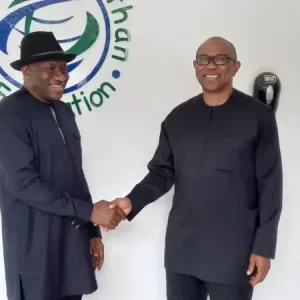Embrace this skill and unlock performance, loyalty, and culture.

You can’t be a great manager without gratitude. At least, that’s according to 3,600 employees from across the globe in the fifth iteration of Achievers Workforce Institute’s (AWI) State of Recognition report. Despite this, only 15% of employees say their manager regularly recognizes them, which should stop every leader in their tracks.
In my world coaching leaders for a living, employee recognition is gradually becoming less fluff and more fuel for driving engagement, performance and results. According to the report, employees who receive weekly, meaningful recognition are nine times more likely to feel a strong sense of belonging, six times more likely to see a long-term career, and 2.6 times more likely to be at peak productivity. Even monthly, meaningful recognition from a manager drives major gains in engagement and trust — as long as it’s indeed meaningful…that is personal, specific, and tied to impact.
The rule is simple: what gets measured gets managed, including recognition. Organizations must move beyond telling managers recognition matters and start measuring it to guide performance discussions.
Gratitude: A Leadership Superpower
Leaders and managers still mistake recognition for a soft skill, when really it’s a superpower proven to combat disengagement — a $438B drain on productivity, according to Gallup. AWI data found that only one-third of employees would recommend their manager. That number jumps 10x when they feel regularly recognized by their manager. It’s no surprise, considering recognition is one of the four core pillars to be an effective manager alongside contact, coaching, and career development. Giving regular recognition should be a non-negotiable.
“Grading managers on how often they give recognition isn’t just about maximizing morale; it has a direct correlation to critical employee outcomes,” said David Bator, Managing Director of Achievers Workforce Institute. “But don’t take my word for it. Our 2025 State of Recognition Report found that 67% of employees would put in 20-50% more effort if they were regularly recognized.”
Imagine the results that would come if every single employee put in just 10% more effort – all it takes is consistent, meaningful thank-yous. The data speaks for itself: employees who their manager regularly recognizes are 3.2 times more likely to be productive, and 2.3 times more likely to problem-solve with others.
As Bator puts it, “Managers should treat recognition like any core leadership skill — bringing it with them everywhere from team meetings to town halls, and not just for the big moments, but the everyday efforts that pave the way for something spectacular. It’s all about recognizing the journey and rewarding the outcome.”

The High Cost of the “Toxiboss”
If recognition is a leadership superpower, neglecting gratitude is kryptonite. Leaders who fall into this trap become what AWI dubs the “toxiboss” — managers more focused on their own advancement than their team’s success.
Toxibosses are on the rise as workplace tensions grow and recognition declines. In 2025, the share of employees who say they’re recognized weekly dropped 15 percentage points year over year. These managers also erode “emotional salary” — the non-monetary components of a job, like culture, belonging, and relationships, that can outweigh pay in driving retention once basic needs are met. As the enemy of emotional salary, toxibosses trigger a domino effect that knocks down productivity, belonging, and retention. It’s no surprise, then, that AWI found 60% of employees are now actively job hunting or open to new offers.
The 2025 State of Recognition Report makes the connection clear: when manager recognition drops, so do key outcomes. Engagement is down nine points year over year, productivity five points, and commitment to stay six points. This signals that employees are not only less likely to recommend their company as a great place to work, but increasingly ready to seek opportunities elsewhere.
Measuring Recognition for Accountability
Tracking how often managers recognize their team is key to improving business outcomes and employee experience. When managers regularly recognize their team, AWI found that employees are 19 times more likely to trust them, 16.5 times more likely to recommend their company, and 11.7 times more likely to feel like they belong.
What’s a good starting point? Organizations should build recognition KPIs into manager performance reviews, then help managers build habits that make gratitude routine. For example, weekly ‘recognition roundtables’ in team meetings, public praise, or kudos during one-on-ones can help make appreciation inescapable, supercharging its promised returns.
In closing, let me reiterate that the most effective managers make gratitude a habit, and the most resilient organizations encourage their leaders to give thanks often, authentically, and with impact. If you want loyalty, productivity, and trust — start with gratitude.
Stay ahead with the latest updates!
Join The Podium Media on WhatsApp for real-time news alerts, breaking stories, and exclusive content delivered straight to your phone. Don’t miss a headline — subscribe now!
Chat with Us on WhatsApp





